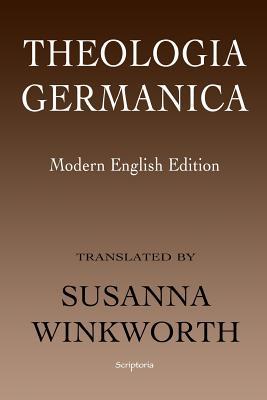The Theologia Germanica is believed to have been written around 1350, by a priest in the house of the Teutonic order in Frankfort, Germany. The author may have been associated with the "Friends of God," led by Dominicans, John Tauler and Blessed Henry Suso. This book came to the attention of Martin Luther, and he is credited with giving the treatise its modern name. Written over a century before Luther's time, its theology draws upon the Latin Christianity of the Rhineland. The Theologia Germanica has appeared in many editions and languages over its 600-year history, and has taken its place beside the Imitation of Christ, in literature of devotion.
Susanna Winkworth (1820-1884), translated the most complete version of the Theologia Germanica known, based on the Wurtzburg Manuscript, discovered in the 19th century. Her translation, first published in 1854, includes additional passages not found in the editions made popular by Martin Luther.
In this Modern English Edition of the Theologia Germanica from Scriptoria Books, only obsolete, archaic, and poetic words have been edited. The grammar and syntax of Susanna Winkworth's original translation from the German manuscript, have been preserved. This creates an edition that is true to the composition of the original translation, while providing a more-modern easier-reading text.
